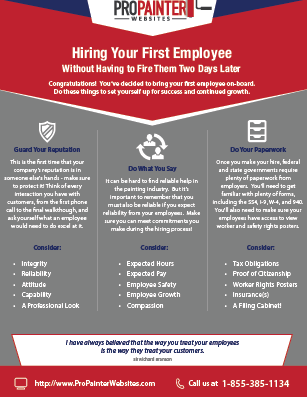Find Out About The Methods Which Seasonal Elements Can Influence The Success Of Industrial Exterior Paint And Identify The Best Times To Attain Lasting Outcomes For Your Job
Find Out About The Methods Which Seasonal Elements Can Influence The Success Of Industrial Exterior Paint And Identify The Best Times To Attain Lasting Outcomes For Your Job
Blog Article
Material Writer-Carlson Browne
When you're preparing an industrial external painting project, seasonal factors can make or break your results. You'll want to think about just how temperature level and moisture impact paint application and drying times. Selecting the right season can ensure your paint sticks effectively and lasts longer. However which seasons are absolutely the most effective for this sort of work? Let's check out the key elements that can impact your job's success.
The Impact of Temperature Level on Paint Application
When you're preparing an industrial external painting job, the temperature level can considerably affect just how well the paint adheres and dries.
Ideally, you intend to repaint when temperatures range in between 50 ° F and 85 ° F. If it's also cool, the paint may not cure correctly, leading to issues like peeling off or fracturing.
On the other hand, if it's too hot, the paint can dry out as well promptly, avoiding proper bond and leading to an uneven finish.
You should also consider the moment of day; morning or late afternoon offers cooler temperatures, which can be a lot more positive.
Always inspect indoor painting companies for the details paint you're making use of, as they commonly offer advice on the optimal temperature level range for optimum results.
Humidity and Its Result on Drying Times
Temperature isn't the only ecological variable that influences your industrial exterior painting project; humidity plays a considerable role also. High humidity degrees can decrease drying out times dramatically, influencing the total quality of your paint job.
When the air is saturated with wetness, the paint takes longer to treat, which can lead to problems like bad adhesion and a greater risk of mildew development. If you're repainting on a specifically moist day, be planned for extensive wait times in between coats.
It's crucial to check neighborhood weather conditions and plan appropriately. Preferably, go for humidity levels between 40% and 70% for optimal drying.
Keeping these consider mind guarantees your job stays on track and delivers a long-term coating.
Best Seasons for Commercial Outside Paint Projects
What's the most effective season for your business external painting tasks?
Spring and very early autumn are typically your best bets. During these seasons, temperatures are moderate, and moisture degrees are often reduced, producing excellent problems for paint application and drying.
Avoid summertime's intense heat, which can trigger paint to completely dry too quickly, resulting in inadequate attachment and coating. Similarly, https://www.expertreviews.co.uk/diy-tools/1413460/best-paint-for-walls can impede proper drying and treating, running the risk of the durability of your paint job.
Aim for days with temperature levels between 50 ° F and 85 ° F for optimum outcomes. Bear in mind to inspect the regional weather forecast for rain, as wet problems can wreck your task.
Planning around these aspects guarantees your painting job runs efficiently and lasts longer.
Verdict
In conclusion, intending your commercial external paint tasks around seasonal considerations can make a significant difference in the result. By organizing job during the ideal temperature levels and humidity degrees, you'll ensure far better bond and drying out times. Remember to keep an eye on regional weather report and select the correct time of year-- spring and very early autumn are your best options. Taking these steps will certainly aid you achieve a sturdy and specialist coating that lasts.
